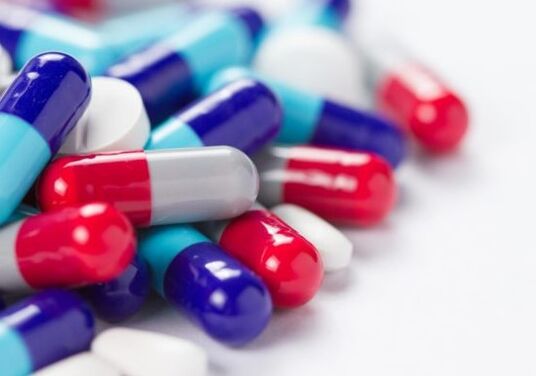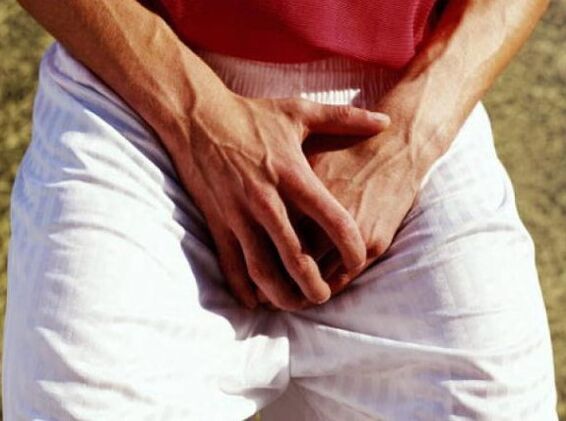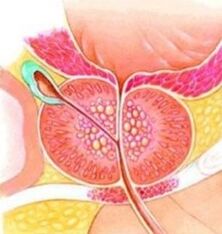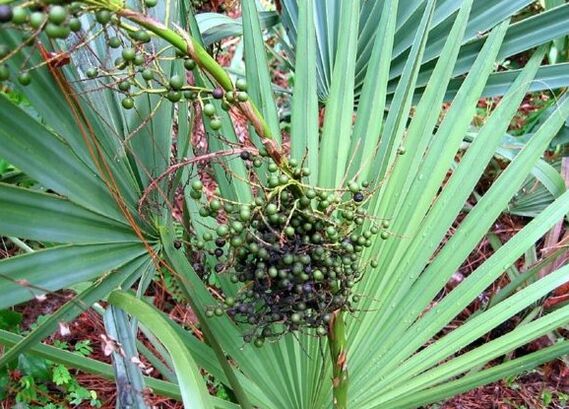Prostatitis is an inflammatory disease of prostate, which develops against the background of exposure to several pathogenic factors at once (such as urinary tract infections, the stagnation of the Seed Liquid in the Seed of Venous Pelvis, etc. ). The polyethological nature of prostatitis determines the need for a comprehensive approach to treatment. Therapy protocols consist of several drugs focused on infectious pathogen (in case of bacterial inflammation), mitigating the inflammatory process, normalization of venous and lympho-pods, as well as the elimination of the remaining inflammatory phenomena for repeat relapse.

Therapy of prostatitis drugs remains one of the main and most favorable methods of outpatient treatment. At home, man can use rectal supositors, tablets, capsules. Fats and gels for inflammatory prostate diseases are seldom used due to the inconvenience of their application. Injections and investments (introduction of antiseptics, antibiotics and ozone solutions directly in the prostatic part of the urethra) are performed in the clinic's procedural office or in the Urological Hospital.
Cheap antibiotics (basic therapy)
Antibiotics are medications that can suppress the growth of live microorganisms in fairly low concentrations and cause death. The drugs of this group are needed for the treatment of infectious prostatitis, which consists of up to 78% of cases of the total number of men with inflammatory prostate diseases. Antibiotic therapy with bacterial prostatitis and prostathitis (combined inflammation glands and bladder) has its own characteristics that must be taken into account when choosing an efficient treatment regime.
- It is necessary to take antibiotics in any form of infectious prostatitis at least 4 weeks. This also applies to those medicines, of which standard therapy is usually 7-10 days.
- The sensitivity of microorganisms, which most often causes inflammatory processes in the prostate (Escherichia Coli Serotype O157 / H7, Fekalan enterococcus, etc. ), to drugs penicillin order quite low, because these bacteria have a thick compound membrane. For this reason, medications from the group of semi -shi -sinthetic penicillins are prescribed for infectious prostatitis only in combination with other antibiotics.
Pay attention!Patients with severe immunosuppression (inhibition of immunological response to the background of interaction with unspeakable factors) is especially needed by the correct choice of antibiotics, which would provide a pronounced bactericide effect. Self -dication in heavy forms of immunodefictions cannot be inefficient, but also dangerous for health due to high risk of superinfection.
Cheap bactericide medications

When using antibiotic therapy, it is important to achieve a bactericide effect, which consists not only in the suspension of the life of pathogens, but also in their death. To treat prostatitis, especially in the case of a repetitive or chronic course, it is advisable to use maximum therapeutic doses in the duration of therapy at least 28 days (for oral dose).
Less to treat prostatitis, antispasmodics are used on the base of the Papavera hydrochloride 1%. Papaverin preparations are advisable to use during worsening, as well as in the chronic pelvic pain syndrome. They are used rectally in the form of a supositor for 1 candle 2 times a day. The recommended course of treatment is 10 days.
Non-synamicle records based on animal hoods
Sorry prostate (extract) is a polypeptide extract that is extracted from dried tissues of the prostate glands of young people who have reached sexually mature and ready to fertilize (bullets of 7-10 months). Preparations based on such extract are only marked for the treatment of chronic prostatitis forms (congestive, aseptic, chronic bacterial and asymptomatic prostatitis) or prostate adenomas to 13-2 phases.
Treatment of drugs of this group, which are produced in the form of candles, tablets, gives a stable positive effect in approximately 31, 3% of patients considered quite high indicators that in the scheme of comprehensive flammable disease prostate. The therapeutic effect of the animals is manifested by the following urodynamic improvements:
- Normalization of regional activities of prostatic glands;
- Improving the outflow of the excretion of the prostate and elimination of stagnation in prostate and pelvic authorities;
- Edema reduction;
- Prevention of pairing (mergers) of platelets and blood clots in vessels in votes;
- Elimination of leukocytes Infiltration in the focus of inflammation.

Prostate extract also has a positive effect on metabolism and metabolism in the tissues of glands, chemical and rheological indicators of prostate.
Drug extract Serenoa Movetur
Serenoa Movatur (Palm, Palmići) is an healing plant, unique properties, in the treatment of inflammatory diseases of the genitourinarian system in men first discovered ancient Indians. To date, the sabbal palm extract is used by methods of not evidence - transferred medicine as an auxiliary tool for the treatment of inflammatory pathology prostate glands (including DHCH).
According to their pharmacological properties, medications made based on the extract of the release palm relate to drugs corrected by urodynamic indicators and help establish metabolic processes in the prostate. Like the funds based on prostate extract, these medications have quite high costs, so patients with disabilities must provide all information about more accessible medications of this group.
In hospitals, Sabal Sabal Dry extract can be used in the form of injections and infusions.
Microcirculation proofreaders
Angio-transceplets and microcirculation lectures are needed for stalling forms of prostatitis, which in the rule develop, on the background of sitting lifestyle and hypo-dynamic disorders. The funds of this group have a vasodilation and angioprotective action, prevent platelet puppies, improve blood flow and lymph fluid in the blood vessels of the microcirculation channel.

Pay attention!If necessary, diagnostic manipulations that require the use of invasive methods, for cancellation of blood extracts, at least 3 days before testing.
What other drugs are prescribed to treat prostatitis?
The combination of medicines, which will in any case be effective and suitable in any case, determines the doctor. In most cases, medications from the NSAID Group (Diclofenac, Ketoprofen) are used to stop the inflammatory process. At the recovery phase, the use of carnitine, vitamins and vitamin-like products is indicated. For a heavy washing tract wash in patients with high risk of upward infection, diuretics are prescribed. The use of a plant with diuretic and antimonytic effects is also displayed.
During acute inflammation, analgesics and antipyretics are prescribed for removing heat and pain reduction. Alpha blockers are prescribed by patients with pronounced urination disorders, followed by pain.
What to do with chronic inflammation: useful tips
In chronic stagnit, bacterial or aseptic prostatitis, it is important not only to take prescribed drugs towards the recommended scheme, but also to eat properly, as well as adjusting all challenged factors.
- In the diet of men who suffer from prostatitis, there should be sufficient protein, zinc, selenium, chromium, as well as some vitamins involved in secreting the seminal fluid. In the daily menu, it is useful to include sea and fish fruits, nuts, seeds, fruits, greenery, eggs and dairy products.
- To prevent relapse, it is necessary to control cholesterol levels. It is important to monitor the content of fat in diet and avoid frequent and increased use of fat products.
- Sexual life should be regular. Long-term abstinence contributes to stagnation of prostate secrets and developing congestive inflammation prostate. In a healthy man, the period of abstinence from intimacy should not be more than three days.
- Insufficient mounting activity is one of the main causes of inflammatory changes in prostate tissues. In addition to special therapeutic gymnastics, men are recommended that they do morning exercises, they walk a lot and visit the pool regularly.

Further observation after the main phase of treatment includes counseling and an urologist's overview at least 3-4 times a year, as well as the passage of laboratory diagnostics (urine, prostate and gladder excretion and ultrasound.
Medications are the basis of basic prostatitis therapy and other inflammatory diseases of the geniteal system. The pharmaceutical industry offers a fairly large selection, so you can choose cheap and effective drugs with any pattern and stage of prostatitis. Only the doctor present should be performed any meetings, taking into account the dynamics of the disease and certain characteristics of the patient. Self-soliders, especially medications with antibacterial effects, is unacceptable due to the high risk of superinfection.























